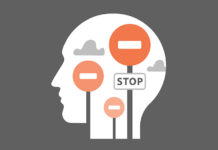Are Depression Guidelines Missing the Evidence for Exercise?
A recent review suggests that depression guidelines do not incorporate evidence for exercise within a stepped-care approach and may be over-reliant on pharmacological treatments.
Current Immigration Policies Create Mental Health Vulnerabilities for Families
Researchers investigate the impact of immigration policies on the mental health of arriving Mexican and Central American immigrants.
New Report Points to Gaps in the Evidence for Pediatric Bipolar Disorder
A new report on pediatric bipolar critically examines the current evidence base and calls for more research before the diagnosis is used.
Do Family Interventions for Psychosis Translate in China?
Researchers explore how family interventions for psychosis might be adapted to China’s emerging integrated mental health care landscape.
The Conflicts That Result From Globalizing Euro-American Psychology in India
Researchers examine the transformation of work, life, and identity in India as a result of Western corporate and psychological culture.
Trauma Blocks the Frontal Lobes – “Verbal Physiotherapy” Can Unblock Them
Trauma makes the speech centers of the brain shut down. This is why talking about abuse is so difficult: the words are blocked. If you reclassify trauma effects as trauma-strokes, and you adapt physiotherapy to take this clinical evidence into account, then you come up with Verbal Physiotherapy.
The Connection Between Sleep, Exercise, Screen Time and Cognition in Childhood
Can current guidelines for sleep, exercise, and screen time in childhood be linked to positive cognitive outcomes?
Community-Driven Healthcare for the Homeless Reduces Hospital Costs
Direct access to care in safe locations is key in reducing healthcare costs and increasing quality of life for homeless populations.
DACA has “Immediate and Positive” Impact on Lives of Immigrant Students, Study Finds
New research demonstrates the benefits and complexities for immigrants transitioning from undocumented to DACA status.
Is There an Optimal Sleep Duration for Adolescents?
A new study finds ideal sleep duration differs in adolescents for peak mental health and academic outcomes.
International Study Documents Widespread Distress in College Students
An international study of college students reveals ubiquitous social and emotional challenges faced by young adults.
What Does Social Justice Really Mean for Psychologists?
Without clarity and consensus around what social justice means, psychologists risk perpetuating injustices that undermine their stated mission.
Trump Anxiety Disorder Is More Fake News
For many people, the current political situation around the world is intensely frightening and not without cause. Depression and anxiety are on the rise, but we need a social model revolution in order to look at why this is happening. Labels like Trump Anxiety Disorder are merely a way to put people’s concerns in a box and leave them unaddressed.
Minimal Evidence for Disruptive Mood Dysregulation Disorder in Childhood
Researchers offer a critical take on the inclusion of the Disruptive Mood Dysregulation Disorder in the DSM-V.
Are Drug Side Effects Driving Depression Rates?
A new study finds that more than a third of Americans are taking prescription drugs that can cause depressive symptoms as a side-effect.
Out-of-home Placements for Children Increase Odds of Psychiatric Issues
When controlling for social and family characteristics, separating children from parents into out-of-home care increases psychiatric issues, prescriptions, and criminal activity.
Study Finds Greening Urban Land Improves Mental Health
Remediating dilapidated physical environments in urban settings can contribute to better mental health.
Challenging Resilience as a Buzzword: Toward a Contextualized Resilience Model
Researcher Dr. Silke Schwarz highlights how Western psychology’s construction of individual resilience deflects emphasized individual pathology and deflects efforts at structural change.
Study Finds First-Episode Psychosis Patients Fare Better with Vitamin D
Researchers examine the relationship between vitamin D and clinical and cognitive symptoms in first-episode psychosis.
Researcher Critically Examines Movements for Global Mental Health
China Mills raises concerns that global mental health movements obscure social determinants of health and naturalize Western mental health concepts.
Research Emphasizes Association Between Inflammation, Diet, and Depression
Study finds adults with a pro-inflammatory diet have a greater incidence of depression.
What Stops People From Using Exercise to Treat Depression?
New research examines important factors of adherence when prescribing exercise to treat depression.
Review Examines Causes and Consequences of Overdiagnosis in Primary Care
A new review in BMJ investigates overdiagnosis in primary care settings, where the majority of mental health care is provided in the U.S.
SSRI Exposure in Pregnancy Alters Fetal Neurodevelopment
Alterations in gray matter and white matter development found in infants of mothers taking SSRI antidepressants during pregnancy.
Can Education Level Predict Prescription Drug Misuse in Young Adults?
A new study examines the extent to which patterns in prescription drug misuse and substance use disorder symptoms can be predicted by education level

































